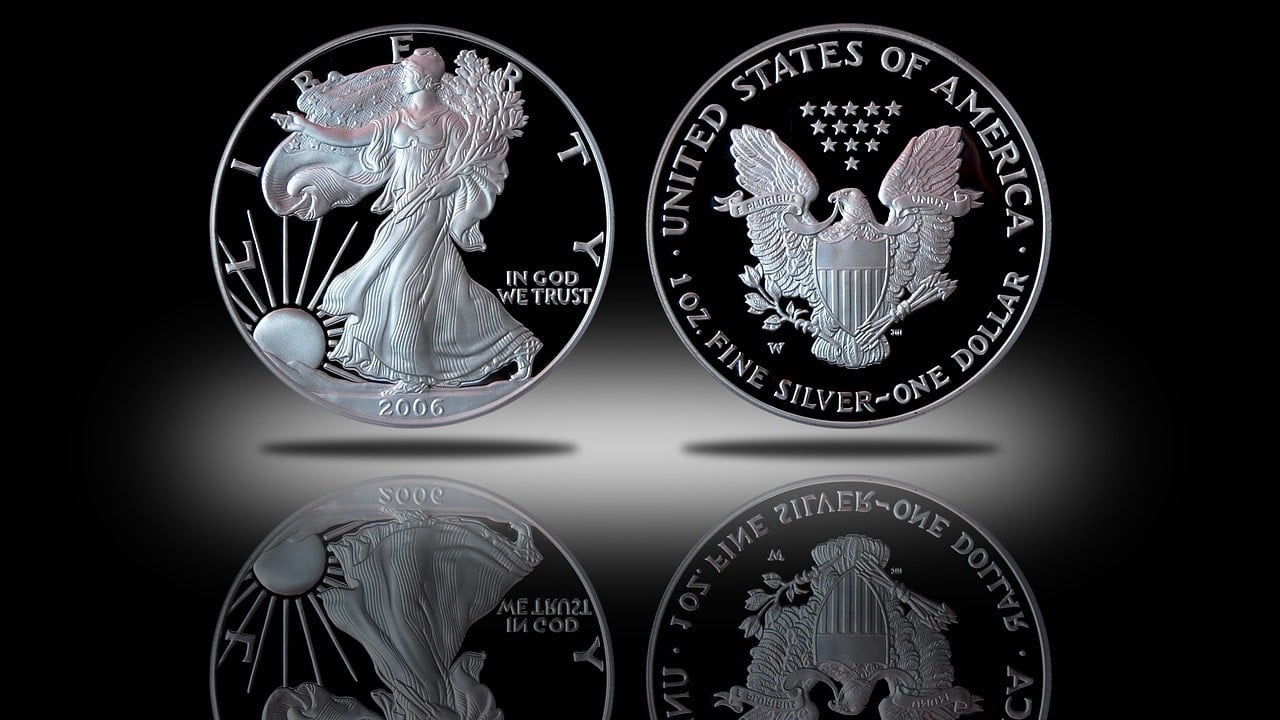(Mike Maharrey, Money Metals News Service) Silver is underpriced. In other words, silver is on sale. The current gold-to-silver ratio reveals this. This ratio tells you how many ounces of silver it takes to buy one ounce of gold. Or to put it another way, the gold:silver ratio tells you the price of gold in silver.
In general, the ratio tends to narrow as a precious metals bull market unfolds. In other words, silver outperforms gold. The opposite is true during a bear market for the monetary metals.
The gold:silver ratio currently stands at over 87:1, meaning it requires 87 ounces of silver to purchase one ounce of gold.
Historical context reveals the significance of the current ratio.
Simply put, it’s out of whack.
The average gold:silver ratio in the modern era has generally ranged between 40:1 and 60:1. When the ratio widens far beyond that range, as it has in recent years, it typically returns toward that mean.
For instance, the ratio fell to 30:1 in 2011 and below 20:1 in 1979.
The pandemic era provides a more recent example. As the Fed cut rates and launched quantitative easing to prop up a shaky economy caused by rate hikes the prior year, the gold:silver ratio climbed to nearly 93:1.
At the onset of the pandemic, the ratio rocketed to over 100:1. But as government shutdowns spread economic carnage throughout the world, gold rallied and took silver with it. The price of gold charted a 39 percent gain, rising above $2,000 an ounce. Meanwhile, silver rallied to nearly $30 an ounce, a 147 percent increase.
The big rally in silver drove the gold:silver ratio down from over 100:1 to just over 64:1, close to the high end of the historical norm.
As the Federal Reserve cut interest rates to battle price inflation, the gold:silver ratio widened once again. History indicates that we could be setting up for another big rally in the price of silver.
The supply and demand dynamics also look good for silver.
Although the official numbers have not yet been released, global industrial demand for silver in 2023 is expected to set a record leading to another big market deficit, according to preliminary projections by the Silver Institute.
According to the Silver Institute, 2023 will chart the third consecutive annual silver supply deficit in a row.
The Silver Institute called the 2022 production deficit “possibly the most significant deficit on record.” It also noted that “the combined shortfalls of the previous two years comfortably offset the cumulative surpluses of the last 11 years.”
Silver isn’t currently priced for this dynamic.
The gold:silver ratio reflects this reality.
Meanwhile, silver premiums are very low.
With silver on sale, it might be a good time to buy some.

